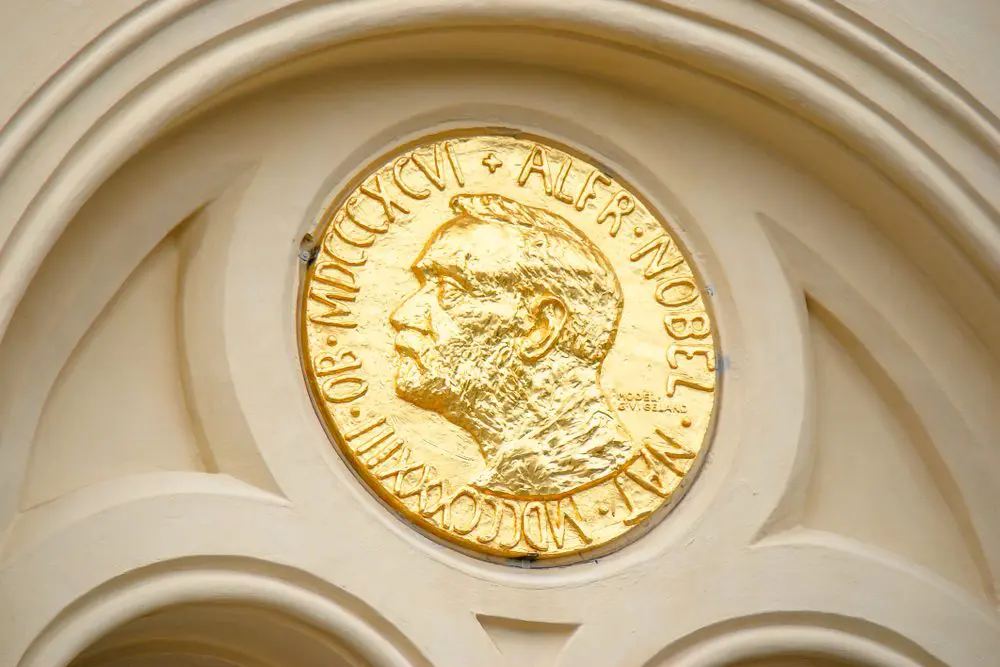Last week, the Nobel Committee announced the winners in three scientific fields – physics, chemistry and medicine. Hightech explains which discoveries of scientists have won the award, why they are, and how their work has changed the world.
The Nobel Prize has given a lot of attention to ecology this year. For example, the chemistry prize went to scientists who figured out how to create new drugs with minimal waste, and the physics prize went to two climatologists. The medical award went to scientists who figured out how we feel about the world. It has nothing to do with ecology, but it can help every person on Earth.
Physics – gather chaos into the system
The 2021 Nobel Prize in Physics was awarded to three scientists whose work laid the foundations for our understanding of complex physical systems. Their research warned the world about climate change.
Shukuro Manabe of Princeton University in New Jersey, Klaus Hasselmann, a former fellow at the Max Planck Institute for Meteorology in Hamburg, Germany, and Giorgio Parisi of Rome’s La Sapienza University have shown how small changes can radically transform complex systems.
Notably, two of the three Nobel Prize winners in physics this year are climatologists (Hasselman and Manabe). This is not the first ever Nobel Prize for climate-related activities, but the first to recognize scientists directly studying the physics of climate change.
Why is it important?
The big picture of climate change is simple enough: Heat trapping gases in the atmosphere turn the Earth into a metaphorical greenhouse, causing the planet to heat up. But these processes are influenced by many factors, all of them are combined into a complex system with many variables.
Physics laureates have managed to find ways to explain the chaos in all of this.
Scientists call complex systems that consist of many parts that interact with each other as independent elements, independently of the rest of the components. It is very difficult to describe them in the language of mathematics. To do this, you need to take into account all the potential options for the interaction of different factors with each other. It should be borne in mind that when interacting with a complex system, the same actions easily give different results. It all depends on the state of the system at the time of contact and in its original form. As a result, in order to predict how she will behave in the future, you need to take into account a huge number of inputs (often we do not even know them).
In the 1980s, Giorgio Parisi proved that seemingly completely random factors are interconnected and even obey certain laws. In fact, his work helps to reduce all unknown variables into a common factor of uncertainty. This significantly increases the accuracy of all calculations, and therefore predictions (for example, the climate on the planet).
In turn, Shukuro Manabe was able to clearly demonstrate how an increase in the CO₂ content in the atmosphere can lead to an increase in temperatures near the earth’s surface. He linked the energy absorbed by the atmosphere with the vertical movement of air above the Earth, which is a critical parameter for climate modeling.
And about 50 years ago, Klaus Hasselman created the first computer model that linked weather to climate. His work became the backbone of the science of climate attribution, which scientists now use to quantify how much people have exacerbated heat waves or increased rainfall.
Chemistry is safe drugs
The Nobel Prize in Chemistry in 2021 was awarded to two scientists who have developed new tools to create mirror molecules. They, in turn, allow new medicines to be created in a more environmentally friendly way.
Researchers Benjamin Liszt from the Institute for Coal Research. Max Planck and David McMillan of Princeton University were awarded the prize “because in 2000 they independently developed a third type of catalysis,” the Nobel Committee said in a statement.
Why is it important?
Chemists create new molecules by attaching tiny chemical building blocks together, but controlling this binding process is not easy. Catalysts play an important role in controlling these reactions, but they also have their limitations. For example, conventional catalysts sometimes fail to prevent a situation that occurs when one process of building the desired molecule produces one of two possible molecules – each is a mirror image of the other, like the left and right hands. These mirror, or chiral, molecules can have completely different properties and interact with the body in their own way. For example, the mirror molecule levomethamphetamine, which is used in nasal inhalers to relieve nasal congestion, is dextromethamphetamine, a therapeutic drug used for ADHD but also a highly addictive street drug.







